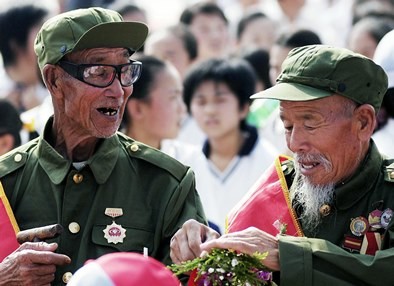Commemoration of wars is not only a part of history. It is also a time to look back on the lessons of the past, on the events and the people that helped shape the future.
Across the world, some countries will commemorate the anniversary of the wars of the past. China, together with Russia, will host a military parade in September to mark the 70th anniversary of the end of the Second World War.
The United States will celebrate not only the anniversary of World War II, but also the culmination of the American Civil War, which was commemorated on April 9, marking the 150th-year anniversary of the surrender of Confederate General Robert E. Lee to the Northern General Ulysses S. Grant, unifying the various states into one country we now know as the United States, and putting an end to slavery.
Both wars played an important role in history, ending repression throughout the world. The two wars have preserved the sovereignty of the people, putting more importance to freedom, over land and territory. However, the vanquished in the two wars still find it difficult to accept defeat and their fate in history.
In the U.S., some Southerners still find an affinity for the so-called "lost cause of the south." Brian Beutler of The New Republic argued in his article that April 9 should be a national holiday, to which some conservatives and southerners reacted furiously. Rick Moran, an editor at PJ Media, accused Beutler of "hating the south."
Mitchell Blatt, in his article on China.org.cn, said people should not react that way since the Confederate States of America, which lasted only for five years, no longer exist. He said the last living Confederate veteran died in 1951 and today, no one is connected to the Confederacy.
Blatt said war is the consequence of the mistakes that a country has made. In the case of the U.S., he said, it was slavery. He said people have a natural desire to honor their ancestors and their history. Americans celebrate their independence from Britain and also for overpowering the German Nazis and the Japanese imperialists during the Second World War.
The big mistakes, such as the one committed by Japan, is also a losing side in the war, according to Blatt. This is also the reason why Japan has a hard time coping with the loss. The Japanese soldiers fought hard but for an unjust cause. Yet the culpability of the politicians and generals is different from the Japanese soldier.
The Yasukuni Shrine is a place where all soldiers who died fighting for Japan from 1868 to 1947, but sadly, among them are 1,068 convicted war criminals, including 14 convicted of A-Class crimes in World War II.
Blatt said misinformation about the war continues such on the on-site Yushukan museum, which states that Japan's puppet state of Manchuria was established by Chinese ethnic groups.
No matter how patriotic someone is, Blatt concludes, the truth should still reign supreme.



























